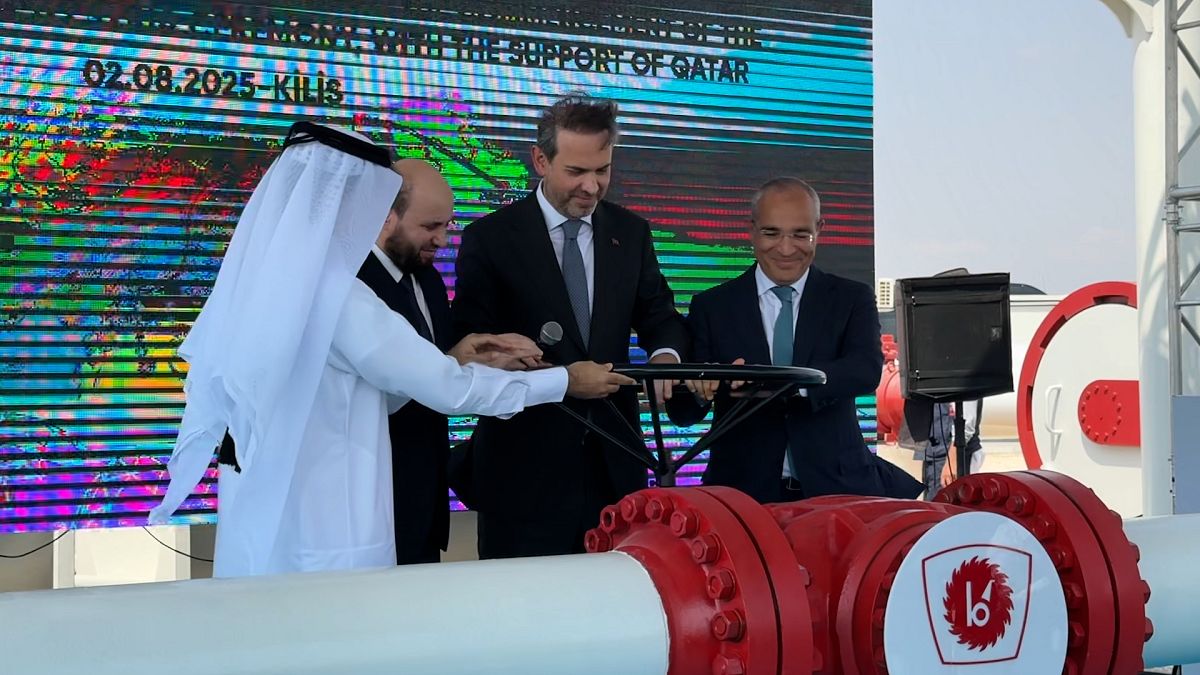

In recent days, significant steps in international cooperation and diplomacy have emerged, illustrating a renewed focus on mutual support and constructive dialogue. These developments span energy projects, migration management, and geopolitical dynamics, each promising positive contributions to global stability and progress.
The Kilis-Aleppo natural gas pipeline, a collaborative project between Turkey, Qatar, Azerbaijan, and Syria, has officially commenced operations, bringing a flow of natural gas from Turkey to Syria. This initiative aims to power approximately five million households in Aleppo, symbolizing a united effort to revitalize and stabilize regional infrastructure. Turkish Minister of Energy and Natural Resources, Alparslan Bayraktar, highlighted the importance of European support for infrastructure projects like this, emphasizing their potential to encourage the return of displaced Syrians from Europe. This energy project reflects a hopeful stride towards rebuilding and supporting livelihoods in affected areas.
Meanwhile, efforts to manage migration flows to Europe have seen progress, as leaders from Italy, Turkey, and Libya recently convened to address this pressing issue. The United Nations High Commissioner for Refugees (UNHCR) reported an increase in the number of refugees and migrants crossing from Libya to Europe, highlighting the urgency of collaborative solutions. The discussions centered around formulating strategies to manage and alleviate the pressures of migration while ensuring the humane treatment of those seeking new opportunities in Europe.
On another diplomatic front, Germany’s Foreign Minister reaffirmed Berlin’s commitment to preventing Israel’s international isolation. As a traditionally strong ally, Germany has voiced constructive criticism of Israel’s actions in Gaza, urging an increase in aid supplies. The German official emphasized an appeal to Hamas to end hostilities, highlighting the delicate balance Berlin seeks to maintain—encouraging peace while supporting allies. This stance underscores Germany’s proactive role in fostering dialogue and seeking peaceful resolutions in the region.
In Australia, the Victorian Labor conference has taken a significant step by voting to recognize Palestinian statehood, applying pressure on Prime Minister Anthony Albanese’s government. This initiative aligns Australia with other nations like Canada, France, and the UK in supporting a sovereign Palestinian state. Additionally, the conference addressed the Aukus submarine deal, although the discussions led to a moderated resolution. These actions reflect the region’s proactive engagement in shaping foreign policy and international relations.
Together, these developments illustrate a global landscape marked by collaboration, dialogue, and a shared vision for peace and stability. By embracing cooperative projects and engaging in meaningful diplomatic conversations, countries aim to address complex challenges and foster a more harmonious international community. As these efforts continue to evolve, they serve as a testament to the power of unity and understanding in navigating today’s interconnected world.
Source: {link}
